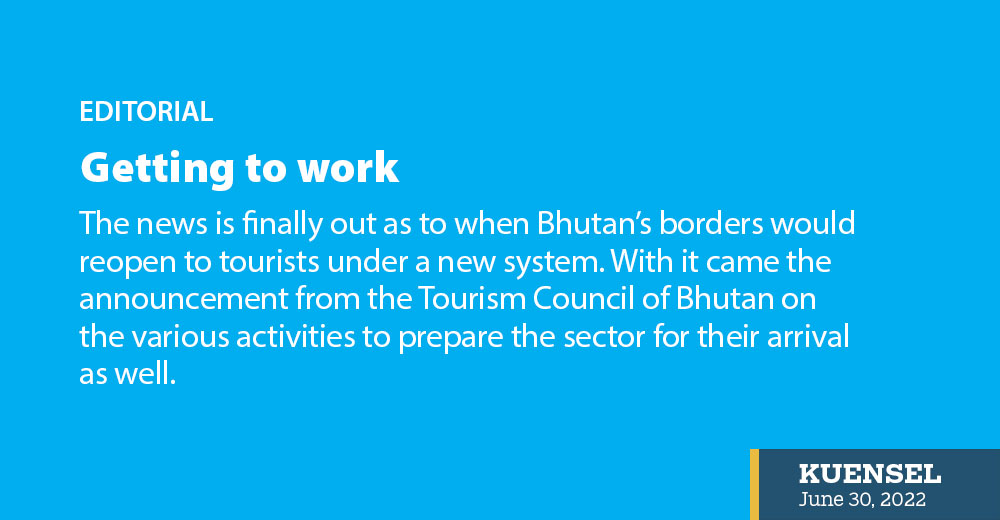The news is finally out as to when Bhutan’s borders would reopen to tourists under a new system. With it came the announcement from the Tourism Council of Bhutan on the various activities to prepare the sector for their arrival as well.
TCB says its plan to revamp the tourism sector is focused on three areas – upgrading infrastructure and services, the elevation of tourists’ experiences, and maintaining carbon-neutral tourism.
In the long run, the goal is to create high-value experiences for visitors, and well-paying and professional jobs for our citizens.
Some portion of the Sustainable Development Fee (SDF) will go towards activities that promote carbon-neutral tourism and building a more sustainable tourism sector which includes offsetting the carbon footprint of tourists and upskilling workers in the sector.
To put it bluntly the analysis today is that we have been taking much from the land and not putting anything, or very little, back. The message we are getting is that this is not good enough. We have to contribute more.
Foreign tourists came to see Bhutan for its pristine environment, unique culture, and traditions that represent, for many of them, a lost world. And that was, indeed, all they saw.
Tourism has largely been the process of bringing in groups of people who pay about USD 250 a day, taking them around the country by vehicle or on foot, and then seeing them off. Most were happy to have been in Bhutan, happy enough to overlook what had become an average, sometimes poor, quality of service.
A bulk of our tour operators did not actually have much infrastructure and were sometimes scrambling to take care of their visitors. And in some cases, tourists have complained.
This is going to change. Standards for service providers, including hotels, guides, tour operators, and drivers are going to be revised. These establishments are going to be subject to a more robust certification process before they can engage tourists. Their employees have to participate in skilling and reskilling programmes, where necessary, to boost service quality. These are urgently needed improvements.
With the sustainable development fee raised to USD 200 a day tourists will expect better service and greater variety.
While this is a change from the more complacent attitude of tourism authorities in the past, TCB will have to reinvent itself and rise up both in terms of resources and human capital to meet the challenges or live up to the expectations of the reforms.
We would also like to see the tour operators, the biggest beneficiaries, do more to raise the profile of the industry. Some are so exclusively high-end and others are so low-end that they do not have an impact beyond their own businesses.
Today’s generation of successful Bhutanese is an extremely lucky generation, owing most of our success to the country whether it is in education, jobs, business, property, or health. It is time to roll up our sleeves and dirty our hands. It is time to pay back.


